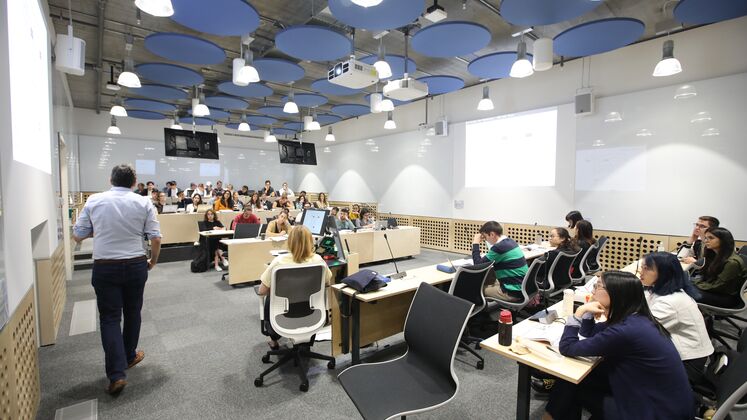As a current student in the Management of Information Systems and Digital Innovation (MISDI) postgraduate taught programme, this blog will tell you about what is it like in a Michaelmas term of MISDI student, what the course is about, and how roughly every module is structured. Please note that two terms (Michaelmas and Lent term) feature entirely different learning experiences. Therefore, this blog will mainly focus on what happens in the Michaelmas term first, while the content for the Lent term will follow in due course.
What is MISDI?
MISDI is a postgraduate programme under the Department of Management. It focuses on how to integrate the interrelated multi-disciplinary knowledge into managing, leveraging, and understanding information systems and emerging digital innovation, e.g. cloud arrangement, big data analytics, blockchain, or artificial intelligence. Teaching is carried out from theoretical and practical perspectives and employs research-led and critical thinking methods.

The class size for 2021/2022 is approximately a hundred students from diverse backgrounds and nationalities. For example, I have my previous experiences and professions in accounting and auditing. At the same time, my cohorts are police officers, start-up entrepreneurs, journalists, among others. And now we are all full-fledged MISDI students pursuing the same academic goals.
A day in the life of MISDI student

For the Michaelmas term, almost everyone in the course is required to enrol in the same compulsory modules, which are three assessed and one non-assessed module. Each assessed module is constructed similarly: one session of lecture per week, followed by the seminar that discussed the in-depth content and a reading list of the same topic covered in the lecture. The detail of the three assessed modules are as follows:
- MG472: Management and Socioeconomics of Digital Innovation involve the managerial challenges that arise from the new domains of digital innovation and how to deal with them. The module’s content will draw from a technological artefact that is in play during the time, e.g., blockchain or AI.
- MG487: Innovation and Information Systems: Concepts and Perspectives deals with the theoretical perspective underlying the study of digital innovation, particularly on how it interacts with the organisational and societal context
- MG481: Innovating Organisational Information Technology involves the design of problems, processes, and solutions through the information systems. This module has the defining feature that made MISDI very distinctive, known as the ‘Sprint Week’ in week 6 of the Michaelmas term. The boot camp project is so valuable; it deserves its own blog in the next entry.
The students are assigned to make a presentation on the reading list covered in each week’s seminar, where they summarise the article and lead the discussion on that article. For example, how it was tied to the course content, whether you agree or disagree with the author, and most importantly, the theoretical and practical implication one can gain from those readings. What I like about the seminar is that the class size is not too big, just 12-15 students per class, which gives you enough opportunities to engage in deep discussion with your fellow students and teacher.
In conclusion, a series of relevant readings, lots of critical thinking, fruitful discussion, and now and then presentation form a day during the Michaelmas term of MISDI students. It may sound daunting at times, but it was enjoyable, so much so that the next thing I knew, the whole 11 weeks of Michaelmas term was over.
This article was written in December 2021 and is considered correct at the time of writing. For more detailed information, please visit the programme page here.





